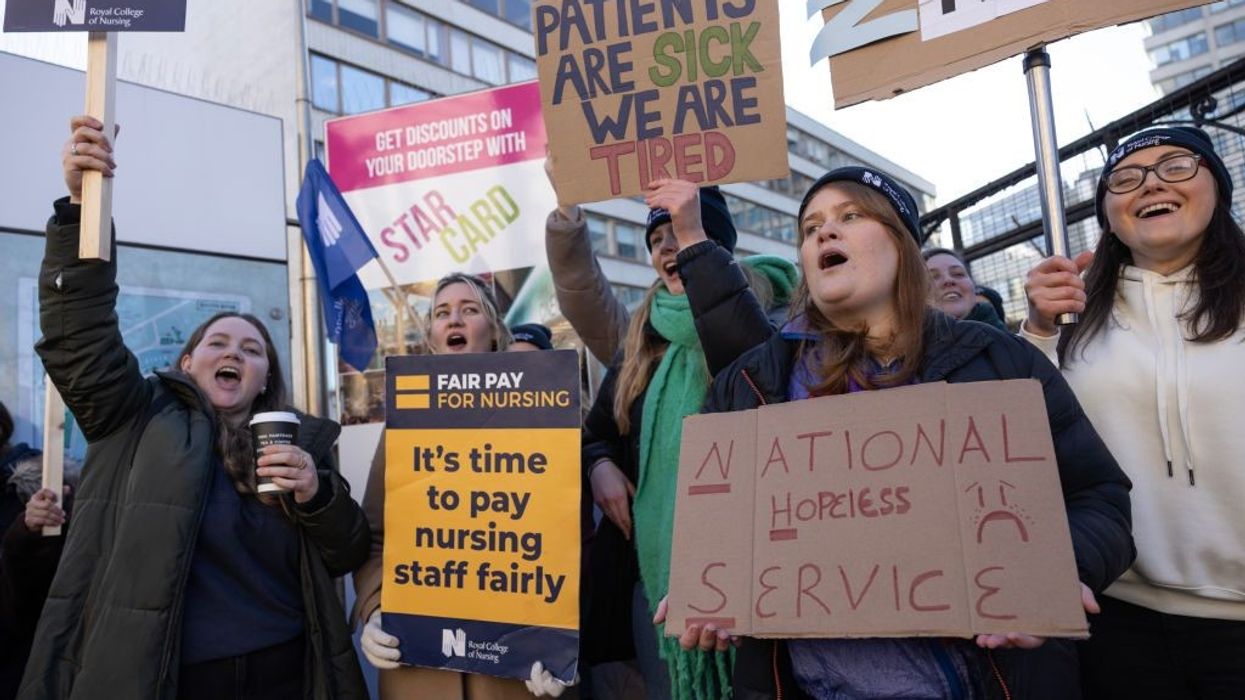A survey has revealed that more than 30 per cent of NHS staff often thought about leaving, and 17 per cent wanted to quit as soon as they find another job, a media report said.
The health service’s 2022 survey said that the number of 'unsatisfied' employees at NHS reached a five-year high mainly due to high levels of burnout, stress and staff shortage, the Guardian reported.
More than one-third of the respondents said they felt burnt out due to their work, and 45% reported having felt unwell due to stress in the past year, compared with 40 per cent in 2019. Burnout among ambulance staff was at an alarming 49 per cent.
As many as 57 per cent of the staff said that they they had come to work despite not feeling well in the last three months. A third of staff who participated in the survey said they had seen errors, near misses or incidents in February that could have hurt staff and/or patients.
A record 7.2 million people were waiting for NHS treatment in England in January and the health service failed to meet any of its cancer targets during the month. Statistics also revealed that barely half of patients at A&E were seen within four hours last month.
According to the newspaper, there are around 124,000 unfilled vacancies across the NHS.
The survey of 636,348 NHS employees further revealed that more than a quarter of NHS staff said they had been harassed, bullied or abused at least once by patients, relatives or other members of the public over the previous year.
Also, 11 per cent of staff experienced bullying from managers and 19 per cent from other colleagues. Levels of physical violence increased slightly from 2021.
Just 26 per cent of the NHS staff are now satisfied with their pay compared with 38 per cent pre-pandemic.
According to the survey, only 57 per cent would recommend NHS as a place to work, the lowest for three years and only 42 per cent were satisfied with the extent to which their work is valued.
It revealed tat eight per cent of respondents had experienced discrimination from patients, service users, relatives or other members of the public, and 9 per cent from managers or colleagues.
Danny Mortimer, chief executive of NHS Employers, part of the NHS Confederation, told the Guardian: “It is no surprise given that we have now witnessed several months of industrial action by NHS staff that those same staff, who have worked through extraordinary challenges over the past few years, have expressed their feelings of deep frustration in these responses. Until staff know help is coming, their overall satisfaction with the NHS will not improve.”
“The government’s failure to protect the NHS is letting down patients and putting them at risk. The outlook is bleak unless ministers change direction dramatically," Helga Pile, the deputy head of health at Unison, was quoted as saying by the Guardian.
"That means a comprehensive workforce plan, plus long-term investment in NHS pay, working conditions, training and apprenticeship places."
Sally Warren, the director of policy at the King’s Fund thinktank, said staff were being stretched to breaking point.
“It will not be possible to tackle the growing backlog of care, if NHS staff continue to be work in overstretched teams and report that work makes them feel unwell," Warren is reported to have said.
Em Wilkinson-Brice, the national director for people at NHS England, said that the NHS is supporting organisations and systems to focus on flexible working, line management, leadership development and career pathways within a compassionate and inclusive culture.





